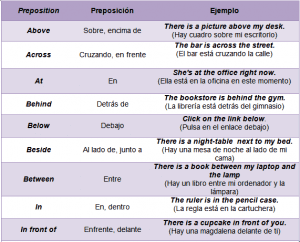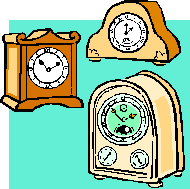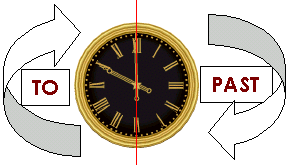
miércoles, 28 de noviembre de 2018
martes, 27 de noviembre de 2018
Canciones para ensayo
We Wish You
a Merry Christmas
Good tidings
we bring
To you and your kin;
Good tidings for Christmas
And a happy New Year!
To you and your kin;
Good tidings for Christmas
And a happy New Year!
We wish you a
Merry Christmas
We wish you a Merry Christmas
We wish you a Merry Christmas
And a happy New Year.
We wish you a Merry Christmas
We wish you a Merry Christmas
And a happy New Year.
Bring us
pudding
Bring us pudding
Bring us pudding
And a cup of good cheer
Bring us pudding
Bring us pudding
And a cup of good cheer
We won't go
'til we get some
We won't go 'til we get some
We won't go until we get some
So bring it out here!
We won't go 'til we get some
We won't go until we get some
So bring it out here!
We wish you a
Merry Christmas
We wish you a Merry Christmas
We wish you a Merry Christmas
And a happy New Year
And a happy New Year
We wish you a Merry Christmas
We wish you a Merry Christmas
And a happy New Year
And a happy New Year
We wish you a
Merry Christmas
We wish you a Merry Christmas
We wish you a Merry Christmas
And a happy New Year.
We wish you a Merry Christmas
We wish you a Merry Christmas
And a happy New Year.
Merry
Christmas
Merry Christmas
Merry Christmas
Good tidings
we bring
To you and your kin;
Good tidings for Christmas
And a happy New Year!
To you and your kin;
Good tidings for Christmas
And a happy New Year!
We wish you a
Merry Christmas
We wish you a Merry Christmas
We wish you a Merry Christmas
And a happy New Year
We wish you a Merry Christmas
We wish you a Merry Christmas
And a happy New Year
Good tidings we bring
To you and your kin;
And a happy New Year!
To you and your kin;
And a happy New Year!
Jingle Bell Rock
Jingle bell,
jingle bell, jingle bell rock
Jingle bells swing and jingle bells ring
Snowing and blowing up bushels of fun
Now the jingle hop has begun
Jingle bells swing and jingle bells ring
Snowing and blowing up bushels of fun
Now the jingle hop has begun
Jingle bell,
jingle bell, jingle bell rock
Jingle bells chime in jingle bell time
Dancing and prancing in Jingle Bell Square
In the frosty air
Jingle bells chime in jingle bell time
Dancing and prancing in Jingle Bell Square
In the frosty air
What a bright
time, it's the right time
To rock the night away
Jingle bell time is a swell time
To go gliding in a one-horse sleigh
To rock the night away
Jingle bell time is a swell time
To go gliding in a one-horse sleigh
Giddy-up
jingle horse, pick up your feet
Jingle around the clock
Mix and a-mingle in the jingling feet
Jingle around the clock
Mix and a-mingle in the jingling feet
That's the
jingle bell rock
Jingle bell,
jingle bell, jingle bell rock
Jingle bells chime in jingle bell time
Dancing and prancing in Jingle Bell Square
In the frosty air
Jingle bells chime in jingle bell time
Dancing and prancing in Jingle Bell Square
In the frosty air
Jingle bell,
jingle bell, jingle bell rock
Jingle bells chime in jingle bell time
Snowing and blowing up bushels of fun
Now the jingle hop has begun
Jingle bells chime in jingle bell time
Snowing and blowing up bushels of fun
Now the jingle hop has begun
Jingle bell,
jingle bell, jingle bell rock
Jingle bells chime in jingle bell time
Dancing and prancing in Jingle Bell Square
In the frosty air
Jingle bells chime in jingle bell time
Dancing and prancing in Jingle Bell Square
In the frosty air
What a bright
time, it's the right time
To rock the night away (rock the night away)
Jingle bell time is a swell time
To go gliding in a one-horse sleigh
Giddy-up jingle horse, pick up your feet
Jingle around the clock
To rock the night away (rock the night away)
Jingle bell time is a swell time
To go gliding in a one-horse sleigh
Giddy-up jingle horse, pick up your feet
Jingle around the clock
Mix and
a-mingle in the jingling feet
That's the jingle bell
That's the jingle bell
That's the jingle bell (rock)
That's the jingle bell
That's the jingle bell
That's the jingle bell (rock)
Jingle bell,
jingle bell, jingle bell rock
Jingle bell,
jingle bell, jingle bell rock
Jingle bell, jingle bell, jingle bell rock
Jingle bell, jingle bell, jingle bell rock
DECK THE
HALLS
Deck the
halls with bought of holly,
Fa la la la la la, la la la la.
Tis the season to by jolly,
Fa la la la la la, la la la la.
Don we now our gay apparel,
Fa la la, la la la, la la la.
Troll the ancient Yuletide carol,
Fa la la la la la, la la la la.
See the blazing Yule before us,
Fa la la la la la, la la la la.
Strike the harp and join the chorus.
Fa la la la la la, la la la la.
Follow me in merry measure,
Fa la la, la la la, la la la.
While I tell of Yuletide treasure,
Fa la la la la la, la la la la.
Fast away the old year passes,
Fa la la la la la, la la la la.
Hail the new, ye lads and lasses,
Fa la la, la la la, la la la.
Sing we joyous, all together,
Fa la la la la la, la la la la.
Heedless of the wind and weather,
Fa la la la la la, la la la la.
fuente: musica.com
Fa la la la la la, la la la la.
Tis the season to by jolly,
Fa la la la la la, la la la la.
Don we now our gay apparel,
Fa la la, la la la, la la la.
Troll the ancient Yuletide carol,
Fa la la la la la, la la la la.
See the blazing Yule before us,
Fa la la la la la, la la la la.
Strike the harp and join the chorus.
Fa la la la la la, la la la la.
Follow me in merry measure,
Fa la la, la la la, la la la.
While I tell of Yuletide treasure,
Fa la la la la la, la la la la.
Fast away the old year passes,
Fa la la la la la, la la la la.
Hail the new, ye lads and lasses,
Fa la la, la la la, la la la.
Sing we joyous, all together,
Fa la la la la la, la la la la.
Heedless of the wind and weather,
Fa la la la la la, la la la la.
fuente: musica.com
lunes, 26 de noviembre de 2018
Canciones para el ACTO DE CLAUSURA
Les dejo los videos de las canciones que cantaremos el jueves.
Su participación es muy importante...
NO FALTE
POR FAVOR NO OLVIDE PARA MAÑANA TRAER SU COLABORACIÓN PARA LA PASTORELA (1 piña).
GRACIAS
Canción 1
https://youtu.be/dSJ4EWeHyE4
Canción 2
https://youtu.be/VfLf7A_-1Vw
Canción 3
https://youtu.be/SIFqnEoctI4
Su participación es muy importante...
NO FALTE
POR FAVOR NO OLVIDE PARA MAÑANA TRAER SU COLABORACIÓN PARA LA PASTORELA (1 piña).
GRACIAS
Canción 1
https://youtu.be/dSJ4EWeHyE4
Canción 2
https://youtu.be/VfLf7A_-1Vw
Canción 3
https://youtu.be/SIFqnEoctI4
viernes, 23 de noviembre de 2018
Ejercicio de los numeros
Ingrese al enlace:
Elabore el ejercicio
Ejercicio 1
https://www.curso-ingles.com/practicar/ejercicios/cardinal-numbers
Ejercicio 2
http://www.saberingles.com.ar/curso/lesson02/05.html
Ejercicio 3
https://www.englishspanishlink.com/ejercicios-ingles/numbers-100-1000.htm
Ejercicio 4
https://www.aprenderinglesgo.com/ejercicios-numeros-ingles-3419
Elabore el ejercicio
Ejercicio 1
https://www.curso-ingles.com/practicar/ejercicios/cardinal-numbers
Ejercicio 2
http://www.saberingles.com.ar/curso/lesson02/05.html
Ejercicio 3
https://www.englishspanishlink.com/ejercicios-ingles/numbers-100-1000.htm
Ejercicio 4
https://www.aprenderinglesgo.com/ejercicios-numeros-ingles-3419
jueves, 22 de noviembre de 2018
miércoles, 21 de noviembre de 2018
Canciones para PASTORELA
Respetables Estudiantes:
Como parte de la evaluación final tenemos la participación de dos cantos en la pastorela 2018, que se realizará el jueves 29 en hora del curso. Aquí les dejo la letra y los videos para que practiquen y salga bonito el acto.
Gracias por permitirme servirles y que haya podido recuperar su curso. Felicitaciones. Felices fiestas.
Noche de Paz
Silent night, holy night
All is calm, all is bright
Round yon Virgin Mother and Child
Holy Infant so tender and mild
Sleep in heavenly peace
Sleep in heavenly peace
Silent night, holy night!
Shepherds quake at the sight
Glories stream from heaven afar
Heavenly hosts sing Alleluia!
Christ, the Saviour is born
Christ, the Saviour is born
Silent night, holy night
Son of God, love's pure light
Radiant beams from Thy holy face
With the dawn of redeeming grace
Jesus, Lord, at Thy birth
Jesus, Lord, at Thy
BLANCA NAVIDAD
I'm dreaming
Of a white Christmas
Just like the ones
I used to know
Where the tree-tops
Glisten
And children listen
To hear sleigh bells
In the snow
I'm dreaming
Of a white Christmas
With every Christmas card I write
"May your days be merry
And bright
And may all your Christmases
Be white".
I'm dreaming
Of a white Christmas
With every Christmas card I write
"May your days be merry
And bright
And may all your Christmases
Be white".
Preposiciones de lugar
Tabla de las Preposiciones de Lugar en la Gramática Inglesa


Realice el ejercicio
martes, 20 de noviembre de 2018
Solución de Evaluación Parcial
Copie las preguntas en su cuaderno.
Utilizando su material de apoyo, realice lo que se le pide.
Utilizando su material de apoyo, realice lo que se le pide.
1.
Escriba cada uno de los pronombres personales en
inglés, escriba el significado en español.
2.
Escriba tres oraciones de cada pronombre
personal utilizando el verbo ser o estar (to be). Tradúzcalas a español:
3.
Cambie a forma de pregunta cada una de las
oraciones que escribió en el inciso anterior. Responda en forma afirmativa y
negativa cada una de ellas.
4.
Escriba tres formas de preguntar la hora en
inglés. Traduzca a español:
5.
Escriba en inglés cada una de las siguientes
horas:
a.
3:05 de la mañana: ________________________________________________
b.
10:16 de la mañana: ________________________________________________
c.
12:24 del medio día: ________________________________________________
d.
17:47 de la tarde: ________________________________________________
6.
Escriba el nombre de los días de la semana y
meses del año en inglés, traduzca a español y realice una oración con cada uno
de ellos. Traduzca a español.
viernes, 16 de noviembre de 2018
Ejercicios DAYS and MONTHS
Ejercicio 1
http://www.saberingles.com.ar/curso/lesson04/06.html
Ejercicio 2
https://www.aprenderinglesgo.com/ejercicios-dias-semana-ingles-2959
Ejercicio 3
https://www.cerebriti.com/juegos-de-idiomas/ordena-los-dias-de-la-semana-en-ingles#.W-7REuhKjIU
Ejercicio 4
https://www.aprenderinglesgo.com/ejercicios-meses-ingles-2978
Ejercicio 5
http://www.saberingles.com.ar/curso/lesson05/08.html
Ejercicio 6
https://www.ejerciciosinglesonline.com/2017/11/02/meses-y-estaciones-del-a%C3%B1o-en-ingl%C3%A9s/
http://www.saberingles.com.ar/curso/lesson04/06.html
Ejercicio 2
https://www.aprenderinglesgo.com/ejercicios-dias-semana-ingles-2959
Ejercicio 3
https://www.cerebriti.com/juegos-de-idiomas/ordena-los-dias-de-la-semana-en-ingles#.W-7REuhKjIU
Ejercicio 4
https://www.aprenderinglesgo.com/ejercicios-meses-ingles-2978
Ejercicio 5
http://www.saberingles.com.ar/curso/lesson05/08.html
Ejercicio 6
https://www.ejerciciosinglesonline.com/2017/11/02/meses-y-estaciones-del-a%C3%B1o-en-ingl%C3%A9s/
miércoles, 14 de noviembre de 2018
Días de la semana y meses del año/ Week days and months of the year
Días de la Semana, Meses y Fechas en Inglés
DÍAS DE LA SEMANA EN INGLÉS
Los días de la semana en inglés son:
| Monday | Lunes |
| Tuesday | Martes |
| Wednesday | Miércoles |
| Thursday | Jueves |
| Friday | Viernes |
| Saturday | Sábado |
| Sunday | Domingo |
Ahora continuemos con algunos ejemplos:
Sunday is my day off - El domingo es mi día libre
I go back to school next monday - Vuelvo (a empezar) a la escuela el próximo lunes
She plays tennis every tuesday afternoon - Ella juega tenis todos los martes por la tarde
On thursdays, I have lunch with my boss - Los jueves almuerzo con my jefe
MESES DEL AÑO EN INGLÉS
Los meses del año en inglés son:
| January | Enero |
| February | Febrero |
| March | Marzo |
| April | Abril |
| May | Mayo |
| June | Junio |
| July | Julio |
| August | Agosto |
| September | Septiembre |
| October | Octubre |
| November | Noviembre |
| December | Diciembre |
Y ahora unos ejemplos:
My son's birthday is in May - El cumpleaños de mi hijo es en mayo
Last July, I went to Europe with my family - El pasado julio, fui a Europa con mi familia
We met in December - Nos conocimos en diciembre
FECHAS EN INGLÉS
Así es como se pregunta la fecha en inglés:
What's today's date?
¿Qué fecha es hoy?
Las siguientes son diferentes formas de responder:
Today is May 25th - Hoy es mayo 25
Today is the 25th of May - Hoy es el 25 de mayo
Expresiones comunes en inglés para hablar de fechas:
What's today's date?
¿Qué fecha es hoy?
¿Qué fecha es hoy?
Today is May 25th - Hoy es mayo 25
Today is the 25th of May - Hoy es el 25 de mayo
Today is the 25th of May - Hoy es el 25 de mayo
| Today | Hoy |
| Tomorrow | Mañana |
| The day after tomorrow | Pasado mañana |
| Yesterday | Ayer |
| The day before yesterday | Anteayer |
| Weekday | Día entre semana |
| Weekend | Fin de semana |
| Holiday | Día festivo |
| Last week | La semana pasada |
| Next week | La próxima semana |
| A month ago | Hace un mes |
| At the beginning of this year | A comienzos de este año |
| At the end of the last century | A finales del siglo pasado |
Ejemplos:
I fell down the stairs at the beginning of this year - Me caí en las escaleras a comienzos de este año
I have my english test today - Tengo mi examen de inglés hoy
I'm staying home this weekend - Me voy a quedar en casa este fin de semana
She plays tennis every tuesday afternoon - Ella juega tenis todos los martes por la tarde
Nota: Cuando se habla de un año en particular, es importante tener en cuenta la manera correcta de expresarlo. En inglés el año se dice de manera diferente al español, así:
1985 - Nineteen eighty-five
(Literalmente, diecinueve ochenta y cinco)1459 - Fourteen fifty-nine
(Literalmente, catorce cincuenta y nueve)1941 - Nineteen forty-one
(Literalmente, diecinueve cuarenta y uno)
Si estuviéramos hablando del número 1.985, diríamos:
1,985 - One thousand nine hundred and eighty-five
Mil novecientos ochenta y cinco
Esto aplica a años antes del 2.000. Después del dos mil, el número y el año se dicen de igual manera, así:
2000 - Two thousand
2004 - Two thousand four
2010 - Two thousand ten
Ahora continuemos con más ejemplos de cómo expresar la fecha en inglés:
What's your birthdate? October 12th, 1976 (nineteen seventy-six) - ¿Cuál es la fecha de tu cumpleaños? 12 de octubre de 1976
July 4th is Independence Day - El 4 de julio es el día de la Independencia
We got married on November 3rd, 2005 (two thousand five) - Nosotros nos casamos el 3 de noviembre de 2005
Her mother passed away in January, 1999 (nineteen ninety-nine) - La madre de ella murió en enero de 1999
Copiar las oraciones
1. I usually go to school on Mondays.
(Normalmente voy a la escuela los lunes)
2. Tuesday is my favourite day of the week.
(El martes es mi día de la semana favorito)
3. I never work on Wednesday.
(Nunca trabajo en miércoles)
4. My mum visits me on Thursdays.
(Mi madre me visita los jueves)
5. My friend Paul is coming this Friday.
(Mi amigo Paul viene este viernes)
6. The concert is on Saturday.
(El concierto es el sábado)
7. I like watching soccer on Sundays.
(Me gusta ver el fútbol los domingos)
martes, 13 de noviembre de 2018
¿Cómo decir correctamente la hora en inglés?
 |
La expresión utilizada en inglés para preguntar la hora es la siguiente:
What time is it? o también What's the time? (menos usual) = ¿Qué hora es?Aunque también existen otras posibilidades: - Have you got the time? - Could you tell me the time please? - Would you mind telling me the time? - Have you got the time on you? - You wouldn't know the time, would you? - Do you know the time? |
Ej. Banks are open from 9:30 a.m. to 2:30 p.m.
Es más normal decir: 'In the morning', 'In the afternoon', 'In the evening', 'At night'
7:00 a.m. = seven o'clock in the morning.
2:15 p.m. = quarter past two in the afternoon.
7:30 p.m. = half past seven in the evening
11:00 p.m. = eleven o'clock at night
o'clock es una contracción antigua que significa 'of the clock' (del reloj). El empleo actual equivale al español 'en punto' (seven o'clock = siete en punto).
o'clock = 'en punto' a quarter past... = 'y cuarto'
half past... = 'y media' a quarter to... = 'menos cuarto'
half past... = 'y media' a quarter to... = 'menos cuarto'
12:00 = midday
24:00 = midnight
 | Cuando a la hora sigue una fracción de minutos, si es inferior a 30 se utiliza el adverbio 'past'. Si es superior, se indican los minutos seguidos de la preposición 'to'.It's twenty past eleven / son las once y veinte It's ten to four / son las cuatro menos diez |
En los horarios oficiales (por ejemplo los horarios de transportes) se sigue el sistema internacional de división del tiempo en 24 horas.
I left on the 17.30 train from Edinburgh / Salí de Edimburgo en el tren de las 17:30
Ejercicios
lunes, 12 de noviembre de 2018
50 ejemplos oraciones presente simple afirmativas
50 ejemplos oraciones presente simple afirmativas
El presente simple (simple present tense) describe una acción que sucede cada día, o una acción que sucede todo el tiempo. En el caso de las terceras personas del singular, He, She it, se debe considerar que:
- A la mayoría de los verbos se les agrega una s al final: He works (Él trabaja), She works (Ella trabaja), It works (Eso trabaja).
- Cuando el verbo termina en o, s, sh, ch, x o z se debe agregar es: He does (Él hace), She does (Ella hace), It does (Eso hace).
- Cuando el verbo termina en y precedida por una consonante, se debe cambiar la ypor i y agregar es: He studies (Él estudia), She studies (Ella estudia).
- Cuando la y es precedida por una vocal, como es el caso de play, solo se agrega una s: He plays (El juega), She plays (Ella juega), It plays (Eso juega).
Ejemplos:
- She reads the newspaper every day. (Ella lee el periódico cada día)
- We come to school by bus. (Nosotros vamos a la escuela en autobús)
- You work very hard. (Tú trabajas muy duro)
- She likes to sit in the sun. (A ella le gusta sentarse en el sol)
- We play in the park every day. (Nosotros jugamos en el parque cada día)
- He watches his son in the park. (Él observa a su hijo en el parque)
- We always try to arrive on time. (Nosotros siempre tratamos de llegar a tiempo)
- He always walks to school. (Él siempre camina para ir a la escuela)
- She does the work of two people. (Ella hace el trabajo de dos personas)
- The dog chases the cat all around the house. (El perro persigue al gato por toda la casa)
- Mr. Green works with my uncle. (El Sr. Green trabaja con mi tío)
- They always play tennis on Sundays. (Ellos siempre juegan tenis los domingos)
- He studies for his English class. (Él estudia para su clase de inglés)
- We eat together every day. (Nosotros comemos juntos todos los días)
- She attends church every day. (Ella va a la iglesia todos los días)
- I speak several foreign languages. (Yo hablo varias lenguas extranjeras)
- She eats in the cafeteria every day. (Ella come en la cafetería todos los días)
- She goes there twice a week. (Ella va allí dos veces a la semana)
- He teaches mathematics. (Él enseña matemáticas)
- We go to the movies every weekend. (Nosotros vamos al cine cada fin de semana)
- She plays the piano every afternoon. (Ella toca el piano cada tarde)
- She kisses me every morning. (Ella me besa cada mañana)
- You watch television every night. (Tú ves televisión todas las noches)
- He carries the books in a briefcase. (Él lleva los libros en un maletín)
- He enjoys his English class. (Él disfruta su clase de inglés)
- The bus stops at the corner. (El autobús se detiene en la esquina)
- She wants to learn French. (Ella quiere aprender francés)
- He speaks German. (Él habla alemán)
- She wishes to learn Italian. (Ella desea aprender italiano)
- The plane leaves from the airport at 8 o’clock. (El avión sale del aeropuerto a las a 8)
- I drive to work every morning. (Yo conduzco al trabajo todas las mañanas)
- He works in the third floor. (Él trabaja en el tercer piso)
- You always come to class late. (Tú siempre llegas tarde a la clase)
- He lives in Boston. (Él vive en Boston)
- I understand everything in the book. (Yo entiendo todo en el libro)
- She wants to visit London. (Ella quiere visitar Londres)
- He plays in the park every afternoon. (Él juega en el parque todas las tardes)
- I go to class twice a week. (Voy a clase dos veces a la semana)
- He does a lot favors to Kelly. (Él hace muchos favores Kelly)
- I drive to San Francisco once a week. (Yo manejo a San Francisco una vez a la semana)
- She seems to be very busy. (Ella parece estar muy ocupada)
- This bag belongs to Jane. (Esta bolsa pertenece a Jane)
- They sell books there. (Ellos venden libros allí)
- The service opens at ten o’clock. (El servicio abre a las 10)
- She smokes a lot. (Ella fuma mucho)
- They play chess every Saturday. (Ellos juegan ajedrez todos los sábados)
- The class begins at nine o’clock. (La clase comienza a las 9)
- She needs to speak English in order to get a better job. (Ella necesita hablar inglés para conseguir un mejor trabajo)
- The boy cries because his toy is broken. (El niño llora porque su juguete está roto)
- The employee fixes the mistake. (El empleado corrige el error)
Suscribirse a:
Comentarios (Atom)






